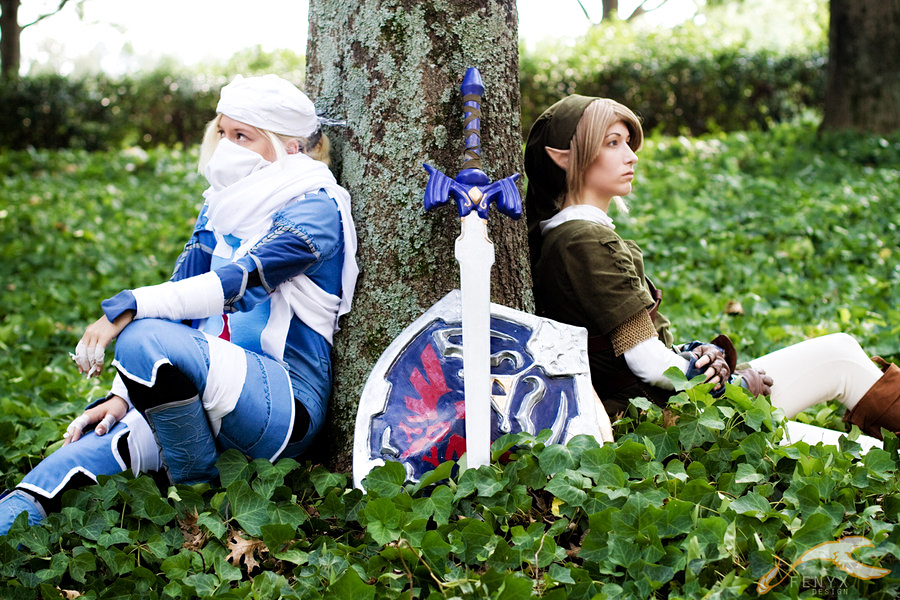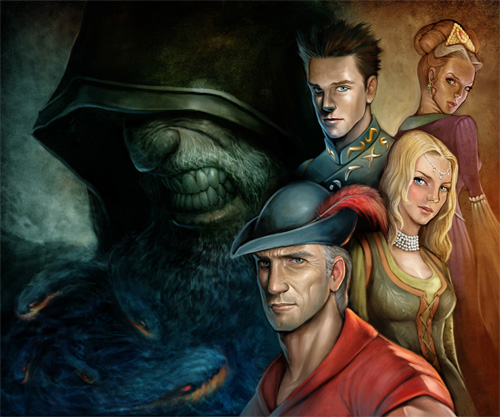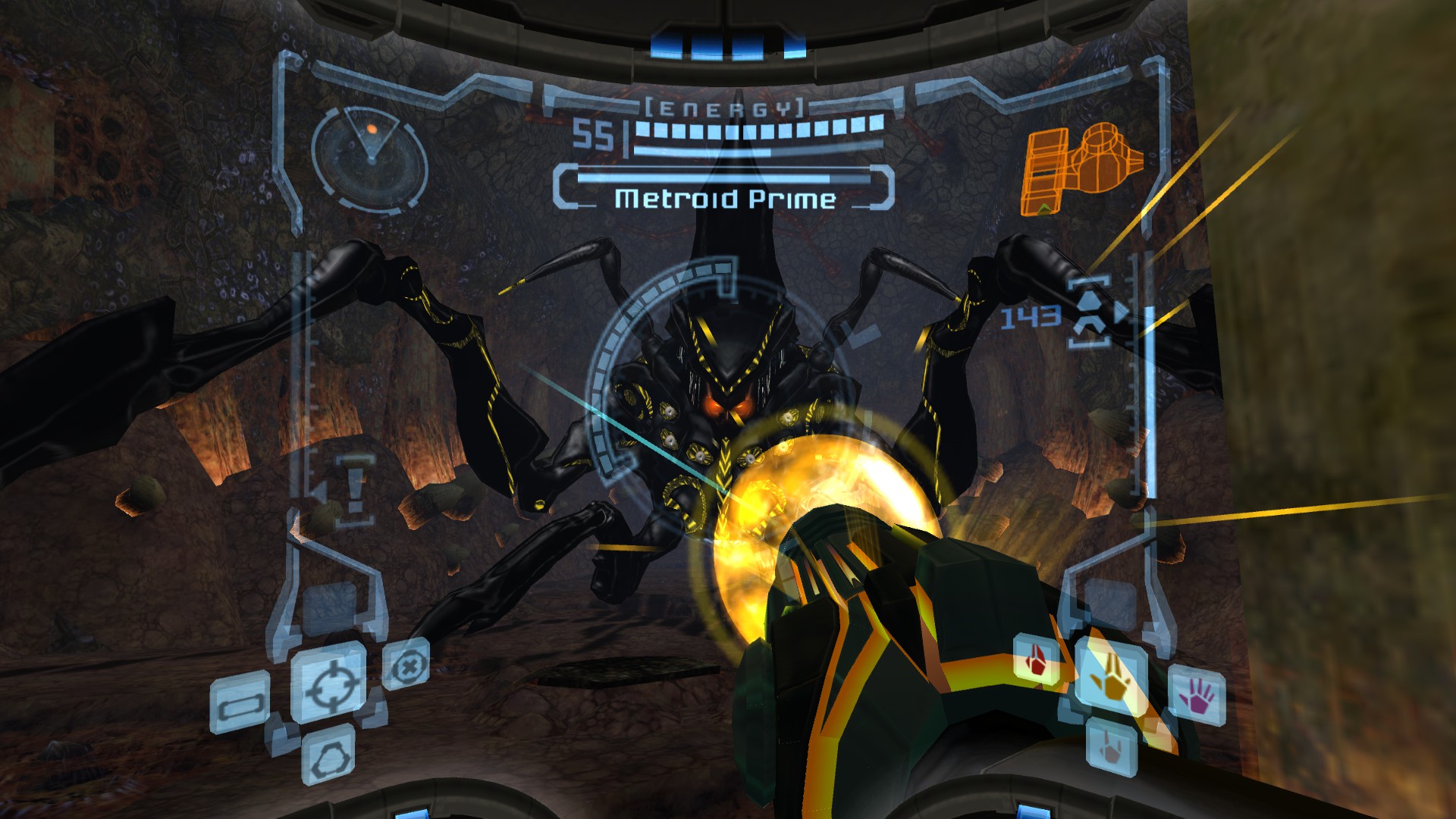Ah games. How we love them. Fans of games show their passion in various ways. Some people, like myself and others, enjoying analyzing and critiquing games; we enjoy writing about them. Others enjoy reading what we crazy writers have to say and responding to our ramblings, which can lead to some thoughtful (and, at times, heated) discussions. Still, more fans go beyond and do something more creative and tangible. They cosplay as their favorite characters. They make short films or artworks of their most beloved games and characters. While all of these fans are great, I want to focus on another type of fan today: the ones who create fan games.

Fans have been making games based on their favorite series for some time now. And since the beginning, fan games have been met with stringent opposition from publishers. Though most fan projects are innocuous labors of love, time and time again we hear about a long-developed fan game getting hit with a cease-and-desist. Despite the constant battle with publishers, fans persevere and continue to make more games. I think it is time to say what many have thought for some time, “Leave fan games alone.”
There are several points and arguments I could levy here, but there are a select few in particular I want to focus on. By killing these projects, we waste the time and effort of these passionate fans. Publishers are stamping out tons of creativity and potential developers by squashing these projects. Fans are being punished for devoting time and passion to the games they love. In some cases, fans are being reprimanded for fixing and improving the game which was launched in a horrible state. Oh the irony!
It’s Wasting Time and Effort
Let’s address one of the biggest problems first: fans spending their time to develop projects which usually never see release. Some fan projects which have been hit with the Banhammer have been in development for years. Not just one or two years, although that is no good either, some have been in development for eight years or more! These things do not just sprout up overnight either. Since these are fans that are usually making these out of love during their free time, they take a lot of time to develop and garner attention from the press and other fans.
Bomber Link’s Streets of Rage remake had been widely known about for some time since its initial development start in 2003, yet Sega only stepped in and shut the project down after the game was released to the public.

Imagine seeing eight years of blood, sweat, and tears disappearing into a black hole with nothing to show for your efforts. Bomber Link claims Sega was alerted to their project long before it ever saw the light of release. If you are going to shut a fan project down, at least have the decency to do it early before years of toiling and effort are invested.
Imagine seeing eight years of blood, sweat, and tears disappearing into a black hole with nothing to show for your efforts.
Publishers Have Become The Killers of Creativity
Most fan projects are more than a simple remake. Even if they are a remake, they are usually remaking a game in a brand-new engine or adding new mechanics of some sort. When transitioning a game to new technology, changes have to be made. It is not a simple copy/paste procedure to make an older game to run on new technology. Many remakes are reconstructing the games from scratch in these new engines. No matter how a fan project is being made, there is creativity of some form involved. Decisions are made on what to leave as is or to change. World design, art direction, music, and more are all aspects of fan games. Killing these projects kill the creative passion behind them.
We then have those ardent fans that are making games completely from the ground up. Chrono Resurrection was a fan remake of the JRPG classic Chrono Trigger that aimed to remake key parts of the SNES classic with modern graphics and all the trappings which accompany more powerful hardware.
This isn’t the first time Square has stopped a well-developed project either. Perhaps one of the most well-known fan games though is The Silver Lining. TSL was an unofficial fan sequel to King’s Quest VII: The Princess Bride. Unhappy with how KQ8 added combat and heavily strayed from the adventure game format and the series’ main cast, fans decided to determine the fate of their treasured characters. After four years of development and releasing the first trailer, Phoenix Studios was served a cease and desist. After negotiations with Vivendi and a massive email and mail campaign from eager fans, Phoenix was allowed to resume development so long as King’s Quest was dropped from the title of the game.

This all changed when Activision and Vivendi merged in 2008. It was not long until Activision served their own letter requesting production come to a halt. Fans and Phoenix held their breath waiting to see if the project would be allowed to continue. Finally, in 2010 Activision allowed the game to be released as a free title and nothing more was said on the matter. To successfully deal with one publisher is nerve-wracking enough, but to negotiate with two major publishers is beyond stressful. Thankfully, the game was released (and a new official entry in the series is slated for later this year), but what about the Chrono Resurrection and Metal Gear remakes of the world? Oh yeah. That Metal Gear fan remake I mentioned originally had Konami’s blessing to make the game so long as no profits were made. However, Konami changed their mind and revoked their blessing. The disheartening effect on the developers is more than I can imagine.
That Metal Gear fan remake I mentioned originally had Konami’s blessing to make the game so long as no profits were made. However, Konami changed their mind and revoked their blessing.
It’s a Slap in the Face to Fans
When you give the axe to a fan game, it reflects poorly on your company. I understand publishers want to protect their IP and the image it has, but what harm was the HD recreation of Bob-omb Battlefield doing to Mario? It was essentially a straight remake of a level from the classic platformer. Being the efforts of devoted fans, the projects usually have nothing but the utmost respect for their source material. The creators want to do nothing more but make a game fellow fans will enjoy. These are not tarnishing the reputation or public perception of any cherished characters. If anything, they increase a yearning for more games starring these characters.

Honestly, all of these fan games are free PR. When people see a fan version of a game they hold dear, they clamor for a new release in the series or seek to the play the ones they have. Either way, fan games keep series in the minds of gamers everywhere at no cost to the publishers. By stamping these projects out, it adds to the feeling some IPs are forever abandoned or due to rerelease hell. Perhaps the worst way you can hurt fans though, is by punishing those who made your game what it is today.
Honestly, all of these fan games are free PR. When people see a fan version of a game they hold dear, they clamor for a new release in the series or seek to the play the ones they have.
When Vampire: The Masquerade- Bloodlines was released in 2004, it was a horribly unfinished, buggy mess of a game. Developer Troika shuttered their doors not long after, leaving the game in a horrid state. In the following ten years, fans have consistently squashed bugs, patched the game, and restored or finished previously unfinished content for the game. Surely the rights holders would allow fans to remake this cult classic for modern gamers? That’s a no Ghostrider. This cease and desist was actually issued late last year. It is one thing to shut a project like the ones mentioned before down. However, to disallow the same fans who actively toiled away, at no cost to the rights holders , at finishing and fixing the game from remaking the same game? This is just a slap to the entire community who still cares about Vampires. CCP should be deeply ashamed of themselves for treating their fanbase so poorly.

This is just a slap to the entire community who still cares about Vampires. CCP should be deeply ashamed of themselves for treating their fanbase so poorly.
The Silver Lining
As bleak as it sounds, there is hope yet for fan games. Developers such as Bioware and Epic have released mad-editing and scripting tools along with a game’s release, encouraging an active modding community. Capcom has featured fan games on their community site and even funded the recent Street Fighter X Mega Man.

Of course, the best example is Valve’s treatment of fan games and mods. Valve wisely encourages modding with the Steam Workshop, allowing players to even receive some payment. Since Counter-Strike, one of the most popular multiplayer games of all time, was birthed as a mod, Valve has allowed fan creations to thrive. Some of these fans have even been hired as a result of their creation. Valve even allows fan games and remakes of their properties to be featured in their digital storefront Steam. I may have issues with Valve’s handling of Steam, but they know how to treat and reward their fans. If more developers encouraged the sense of community, creativity, and modding Valve does, things would be different indeed.
TL;DR
- Fan projects are the effort of time invested. Killing these projects off leads to time wasted and is especially cruel when the project is killed immediately following release.
- Squashing these projects kills the creativity and talent involved and can disenfranchise new talents from pursuing game development.
- They are free PR and are never released for profit.
- Stopping these games reflects poorly on your company.
- Being made by fans, they usually reflect highly on the series or characters they are based upon.
- If your fanbase was instrumental in your game, don’t punish them by shutting their games down. No need to be mean.
Going Forward
Fan projects can be wonderful things and can showcase some awesome talent. As a publisher, you want to cultivate and interact with your fans in a positive and meaningful way. If fans want to make a game based on your game, just keep tabs on it and make sure it does not reflect poorly on your IP. If a fangame was released for money or somehow tarnished a reputation of a character or series, there would be a predicament. This is usually not the case though, so why not allow this creativity to thrive? If anything, go after all the awful and horrifying fanfiction floating around and leave the fangames alone.







Published: Apr 14, 2015 05:54 pm